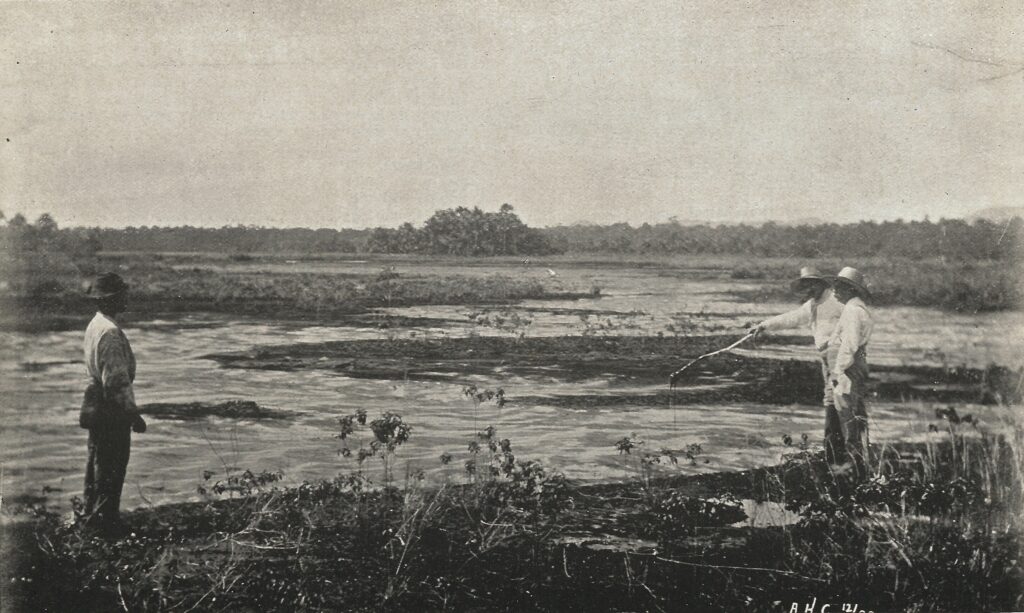
Legalist Empire (Oxford University Press, 2016)
This book shows how America’s age of overseas empire in the early twentieth century was simultaneously an age of international law. Justifying America’s empire with the language of law and civilization, international lawyers–serving simultaneously as academics, leaders of the legal profession, corporate attorneys, and high-ranking government officials–became central to the conceptualization, conduct, and rationalization of US foreign policy.
Honorable Mention, Vincent P. DeSantis Book Prize, Society for Historians of the Gilded Age and Progressive Era

A Century of Sanctions, Origins, 2019
President Donald Trump has made sanctions a centerpiece of his foreign policy. This piece traces the history of US sanctions in the twentieth century to show that while Trump’s actions are not unprecedented, his penchant for unilateralism risks may undermine US power abroad.

“The Secret Life of Statutes: A Century of the Trading with the Enemy Act,” Modern American History, 2018
In 1917 Congress passed the Trading with the Enemy Act to prevent trade with Germany and the Central Powers. It was a wartime law designed for wartime conditions but one that, over the course of the following century, took on a secret, surprising life of its own. Eventually it became the basis for a project of worldwide economic sanctions applied by the United States at the discretion of the president during times of both war and peace. This article traces the history of the law in order to explore how the expansion of American power in the twentieth century required a transformation of the American state and the extensive use of executive powers justified by repeated declarations of national emergency.

“Securing Hegemony through Law: Venezuela, the U.S. Asphalt Trust, and the Uses of International Law, 1904–1909,” Journal of American History, 2015
In a vital yet overlooked episode of U.S. foreign relations, in 1904 Venezuelan President Cipriano Castro seized the property of the New York & Bermudez Company (NY&B), a subsidiary of the U.S. Asphalt Trust. The company—which had previously bankrolled a failed anti-Castro revolution—hired international lawyers to lobby the U.S. government to intervene on its behalf. Contrary to prevailing accounts that condemn law as misguided idealism or dismiss it as pure rhetoric, this episode shows how legal institutions and expertise shaped the conceptualization and conduct of American diplomacy. Lawyers exerted outsized influence in the State Department and policymakers took law seriously. But the international law of the time was infused with concepts of empire and civilization, often encouraging great power intervention rather than restraining the use of force. Drawing on lawyers’ previously-untapped archives, this article shows how the NY&B leveraged professional networks to earn support for its questionable claims. When the apparent corruption of this process created a public relations crisis, Secretary of State Elihu Root turned to legalism to resolve the situation. Believing that law could manage relations among European and American states and private actors, Root promoted the use of arbitration, courts, and newly-professionalized legal expertise to expand U.S. hegemony. The success of Root’s plan turned on his ability to legitimize international law to foreign and domestic publics even as the NY&B continued to find ways to exploit it for its own purposes. Law facilitated the NY&B’s eventual triumph by ensuring that the matter remained subject to U.S. jurisdiction. In highlighting the legal component of the emergent American empire, this episode anticipates the role of legal argumentation and manipulation in the further expansion of American global power in the twentieth and twenty-first centuries.
Winner of the 2016 Binkley-Stephenson Prize from the Organization of American Historians

Ben Coates is Associate Professor of History at Wake Forest, where he teaches courses in the history of the US and the World and in legal history.
He is the author of Legalist Empire (Oxford University Press) and is currently working on a history of economic sanctions in the United States during the 20th century.
Ben is a co-editor of the US and the World book series with Cornell University Press.
Follow him on twitter @BenjaminACoates